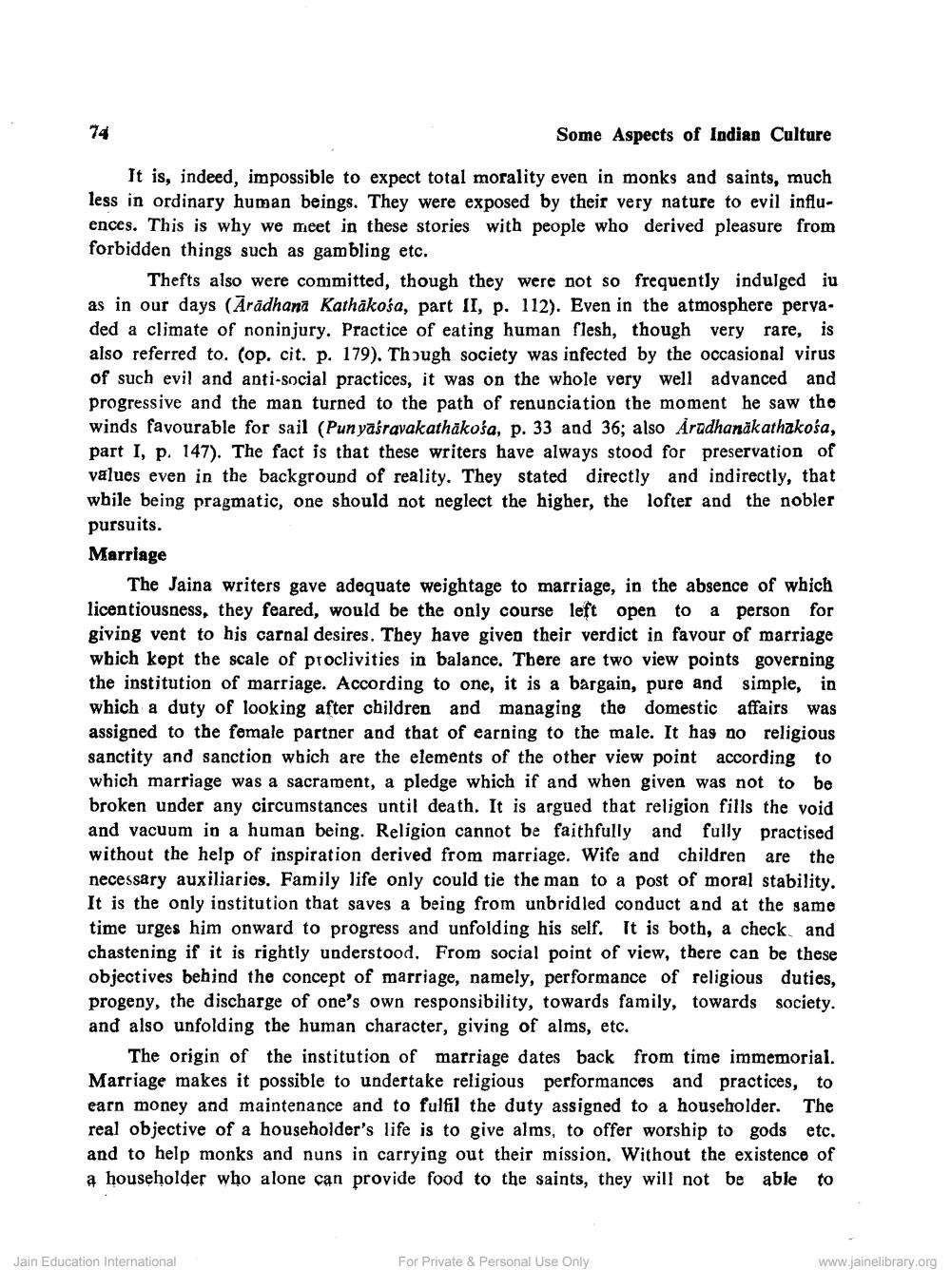________________
74
Some Aspects of Indian Culture
It is, indeed, impossible to expect total morality even in monks and saints, much less in ordinary human beings. They were exposed by their very nature to evil influences. This is why we meet in these stories with people who derived pleasure from forbidden things such as gambling etc.
Thefts also were committed, though they were not so frequently indulged ju as in our days (Aradhana Kathakota, part II, p. 112). Even in the atmosphere pervaded a climate of noninjury. Practice of eating human flesh, though very also referred to. (op. cit. p. 179). Though society was infected by the occasional virus of such evil and anti-social practices, it was on the whole very well advanced and progressive and the man turned to the path of renunciation the moment he saw the winds favourable for sail (Punyairavakathakoša, p. 33 and 36; also Aradhanakathakota, part I, p. 147). The fact is that these writers have always stood for preservation of values even in the background of reality. They stated directly and indirectly, that while being pragmatic, one should not neglect the higher, the lofter and the nobler pursuits.
Marriage
The Jaina writers gave adequate weightage to marriage, in the absence of which licentiousness, they feared, would be the only course left open to a person for giving vent to his carnal desires. They have given their verdict in favour of marriage which kept the scale of proclivities in balance. There are two view points governing the institution of marriage. According to one, it is a bargain, pure and simple, in which a duty of looking after children and managing the domestic affairs was assigned to the female partner and that of earning to the male. It has no religious sanctity and sanction which are the elements of the other view point according to which marriage was a sacrament, a pledge which if and when given was not to be broken under any circumstances until death. It is argued that religion fills the void and vacuum in a human being. Religion cannot be faithfully and fully practised. without the help of inspiration derived from marriage. Wife and children are necessary auxiliaries. Family life only could tie the man to a post of moral stability. It is the only institution that saves a being from unbridled conduct and at the same time urges him onward to progress and unfolding his self. It is both, a check and chastening if it is rightly understood. From social point of view, there can be these. objectives behind the concept of marriage, namely, performance of religious duties, progeny, the discharge of one's own responsibility, towards family, towards society. and also unfolding the human character, giving of alms, etc.
The origin of the institution of marriage dates back from time immemorial. Marriage makes it possible to undertake religious performances and practices, to earn money and maintenance and to fulfil the duty assigned to a householder. The real objective of a householder's life is to give alms, to offer worship to gods etc. and to help monks and nuns in carrying out their mission. Without the existence of a householder who alone can provide food to the saints, they will not be able
Jain Education International
For Private & Personal Use Only
www.jainelibrary.org




